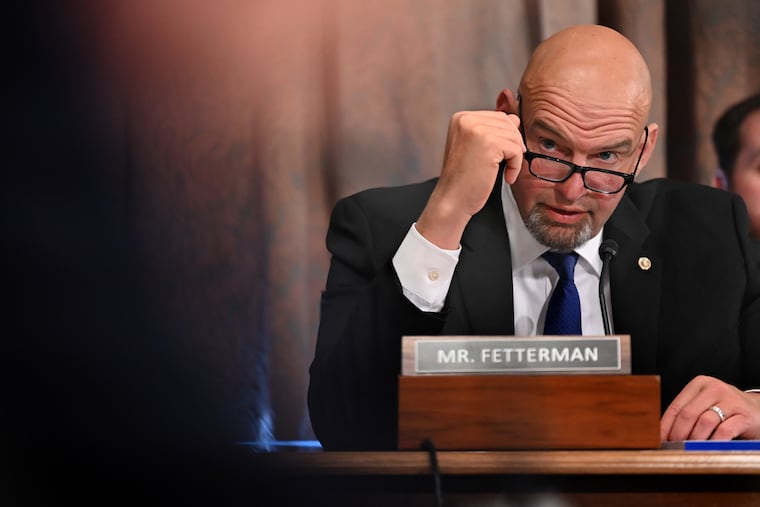Debt ceiling deal reveals who’s a ‘show horse’ in Washington
The my-way-or-the-highway caucus has Democrats and Republicans in it, but thankfully not enough to sink the entire economy.

For once, the optimists were right.
After all the doomsaying about America defaulting on its debt and plunging the world into depression, after all the dubiously legal, “one weird trick” ideas to avoid it, we solved it in the same way we always have: by Congress and the president compromising on legislation and getting it passed.
In the end, serious people on both sides of the aisle stood firm where they could, bent a little where they had to, and struck a deal. The far-right of the Republican caucus didn’t like it, and neither did the far-left of the Democratic Party, but there in the squishy middle we found enough responsible men and women to keep the country going. Neither party’s leader got everything he wanted, but in the end, Speaker Kevin McCarthy and President Joe Biden both got what they could live with.
They put the country above their own vision of what a perfect bill would look like and maintained America’s credit — and with it, the financial stability of the world economy. The system worked.
Plenty of people in political office still oppose the deal. From the right, Texas Rep. Chip Roy — one of the members who opposed McCarthy’s speakership bid in January — said that “not one Republican should vote for this deal – not one.” And from the left, California Rep. Ro Khanna said the agreement “is not a deal that upholds progressive values. It increases spending for defense and limits the pot of money for everything else.” The my-way-or-the-highway caucus has Democrats and Republicans in it, but thankfully not enough to sink the entire economy.
» READ MORE: Debt ceiling deal is a hollow victory | Editorial
The compromise bill passed by comfortable margins, but got a thumbs-down from 46 Democrats and 71 Republicans in the House. Four Democrats joined 31 Republicans in the Senate to vote against it as well. The divide between Pennsylvania’s senators, in particular, shows the split between one Democrat who will compromise for the greater good and one who would let it all burn rather than moderate his principles.
Sen. Bob Casey followed the lead of Biden and his party leadership in voting to pass the bill. That’s not too surprising: Without ever deviating very far from the party’s mainstream, Casey’s temperament over the years has made him appear moderate, and in this case, voting for the debt ceiling bill was both the centrist thing to do and the thing Democratic Party leaders wanted. “This bipartisan bill protects Pennsylvanians’ jobs and hard-earned savings, and the full faith and credit of the United States,” Casey said. “American families pay their bills and so should their government.”
On the other hand, we have Sen. John Fetterman, who joined the three other irreconcilable Dems in voting down the measure. Why go against a president of his own party? In a statement, Fetterman explained his objection stemmed from new restrictions on food aid from the Supplemental Nutrition Assistance Program (SNAP), added by Republicans who wished to reduce deficit spending. “I did not agree to these SNAP restrictions, and I won’t give Republicans an opening to try and take food from more food insecure Americans in Farm Bill negotiations later this year,” Fetterman said.
The SNAP restrictions in question gradually raised the maximum age for work requirements so that childless adults between ages 50 and 54 who are not homeless or veterans would now have to work or be in job training for 20 hours a week in order to receive food assistance, just as those under 50 currently do. Fetterman, 53, thinks people his age shouldn’t have to work at all for their benefits: Fine, but is it worth bankrupting a nation? And it isn’t even a real objection — Fetterman said that if his vote mattered for final passage of the bill, he would have been for it. His performance was purely theatrical.
Here we see the difference between a workhorse and a show horse.
Show horses go on TV and attract fanatical followings. We all know what a show horse in Congress is — they’re most of the members we’ve heard of because they spend their time in front of a camera: Alexandria Ocasio-Cortez and Fetterman on the left, Lauren Boebert and Matt Gaetz on the right. They don’t accomplish much because they’re not interested in building a coalition or working with others. Since these extreme voices are often showcased by the media, ordinary voters believe that the country is much worse off than it actually is.
It’s easy to stand on principle when you rely on others to get the hard work done. Those others, whose names are less well known to cable news viewers, also arrive in Washington with principles. (No one runs for office thinking, “I can’t wait to compromise!”) But most know that in our system of government — where the House, the Senate, and the president must agree before a law is passed — getting some part of what you and your constituents want is worth giving way on something else.
It’s easy to stand on principle when you rely on others to get the hard work done.
Being a workhorse is more difficult, but starting with principle, moving to compromise, and getting something done is what most Americans want from our elected leaders.
This debt ceiling deal is a pleasant reminder that not everyone in Congress is a bomb-throwing camera hog. Some of them, thankfully, want to make things work.